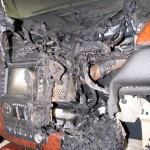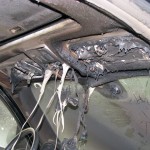Below is the paper I did about world Christianity. The author of the essay I am reflecting on is from Sri Lanka, and I was surprised to find some interesting similarities between American culture and Indian culture.
Missiology Essay Paper 3
about
Essay: God: the Source, the Originator, and the End of Mission
by Ajith Fernando
November 20, 2009
Submitted by Lisa DeLay
Ajith Fernando in his essay, God: the Source, the Originator, and the End of Mission, presents the church as a mirror of the Trinity, and surmises the challenges of missiology in the second half of the 20th century, and in his current context of Sri Lanka. He first looks at Paul’s epistles as a study of theology to discover a Scriptural missiological telos.
Fernando speaks of fear as a dominant emotion for the world population–whether they are rich of poor. The rich fear economic reversals or harsh business environments, and the poor fear destitution and oppression by demonic forces. For both groups, the power of God in atonement, and the gospel is vitally important to impart to them. These principles include God’s sovereignty, his gloriousness, righteousness, God as the source of revelation and salvation, God’s gift of salvation, God’s will for our lives, and God’s post-salvation blessings to us. Our response to God is met in the acts of belief, worship, commitment and obedience, godliness, and accountability to God.
As Fernando moves into some of the crises of the church in his region, I sense that many of the same issues plague the body of Christ in the U.S.A. in many similar ways–though a unique American twist is apparent. The “magical view of God,” is common for Fernando’s people, where they are used to apprehending God similar to the way they had understood their originally worshiped deities. These prior deities were considered powerful and would do favors for them. Eventually, the people first came to the Almighty God for things like healing from a sickness, for demonic deliverance, or relief in a financial crisis.
Here, in the U.S. many also view God in an immature, or simplistic, light as well. Many may understand him to be something like a magical genie that should comfort them, fix their problems, and help out in crisis. Christian Smith offers a term for American youth, which I believe to aptly to many adults as well. Moralistic Therapeutic Deism consists of beliefs like these:
1. “A god exists who created and ordered the world and watches over human life on earth.”
2. “God wants people to be good, nice, and fair to each other, as taught in the Bible and by most world religions.”
3. “The central goal of life is to be happy and to feel good about oneself.”
4. “God does not need to be particularly involved in one’s life except when God is needed to resolve a problem.”
5. “Good people go to heaven when they die.”1
Fernando mentions that to people in Sri Lanka, many times the subjective blessings, rather than the important implications of holiness, are what the Christians are more focused on. I sense a great similarity here, with many American Christians who are stunted in their spiritual formation. The, “what is God doing for me,” mentality, or “what can I do for God so he favors me more,” is a common notion in quite a few Christian circles.
In (his) church, Fernando says prayer requests, and testimonies tend to be about temporal matters or needs. This rings true for my church, as well, and I am sure in many other American churches too. When one reads our church’s prayer listing, requests are most frequently for sickness, physical safety (such as for those in the military, or traveling), or for temporal, or tangible/material needs, (such as finding a job, family stability, fundraising, good weather, or an upcoming event.) I do not ever remember hearing of a prayer request that included something like, “learning peace and patience during a trial or loss.” I do not remember anyone in my church requesting prayer that his particular suffering would bring him closer to God. Many personal testimonies, as well, or prayer requests revolve around tangible blessings, alleviating personal suffering, meeting temporal needs, or the satisfaction of acquiring personal preferences, (such as healing, or a desired answer to a temporal need.)
1 R. Albert Mohler, Jr.| “Moralistic Therapeutic Deism–the New American Religion” Christian Post. Accessed November 16, 2009 from http://www.christianpost.com/article/20050418/moralistic-therapeutic-deism-the-new-american-religion/index.html





